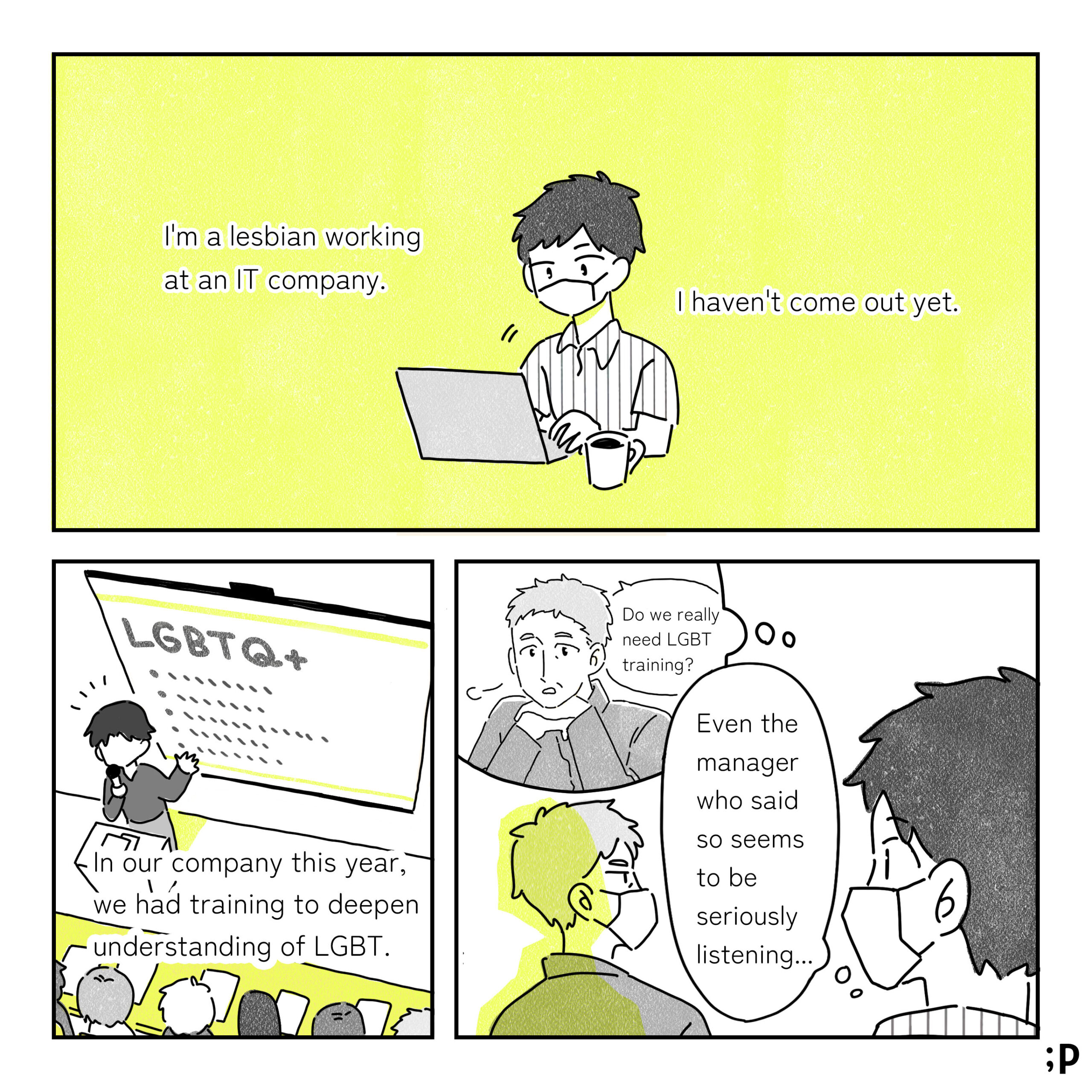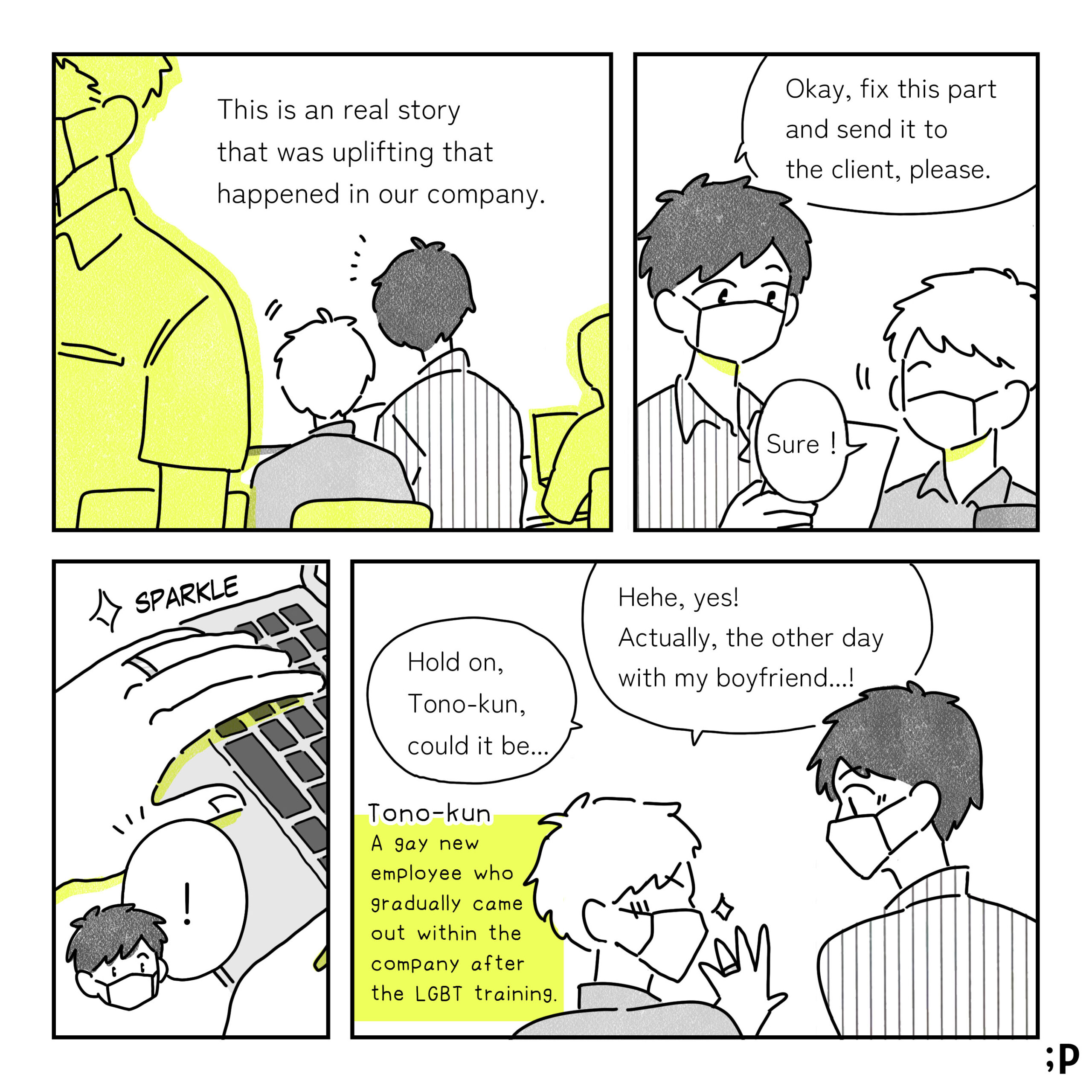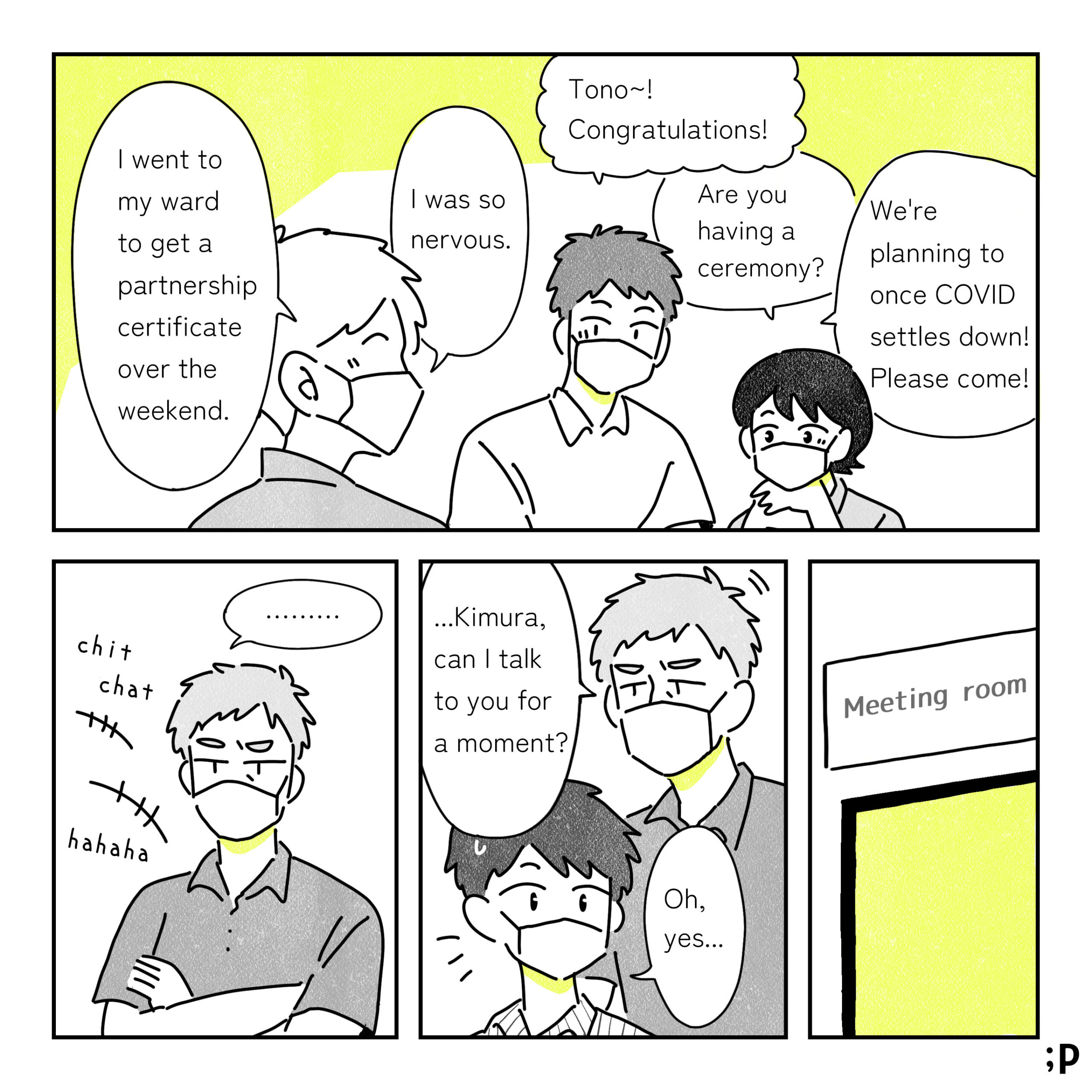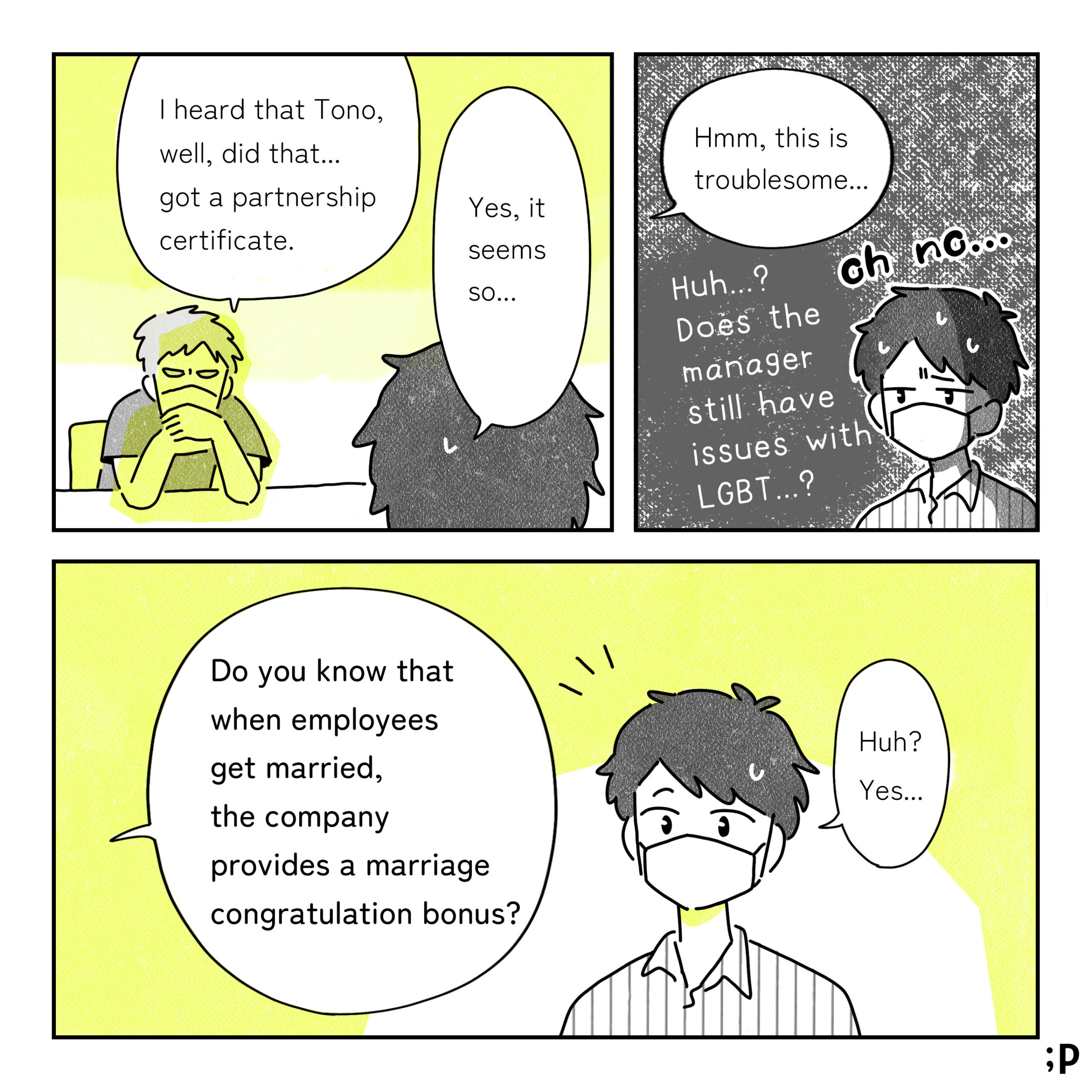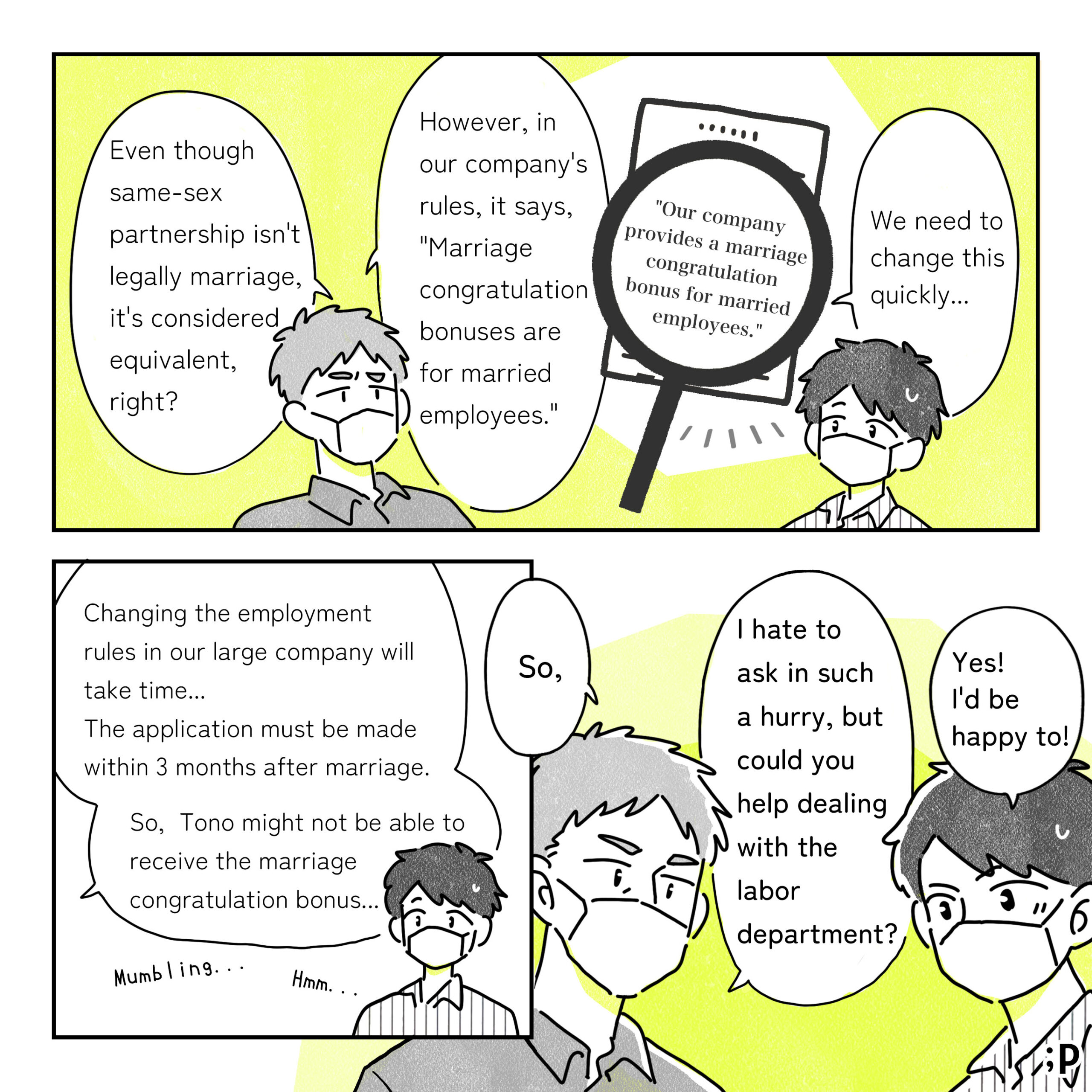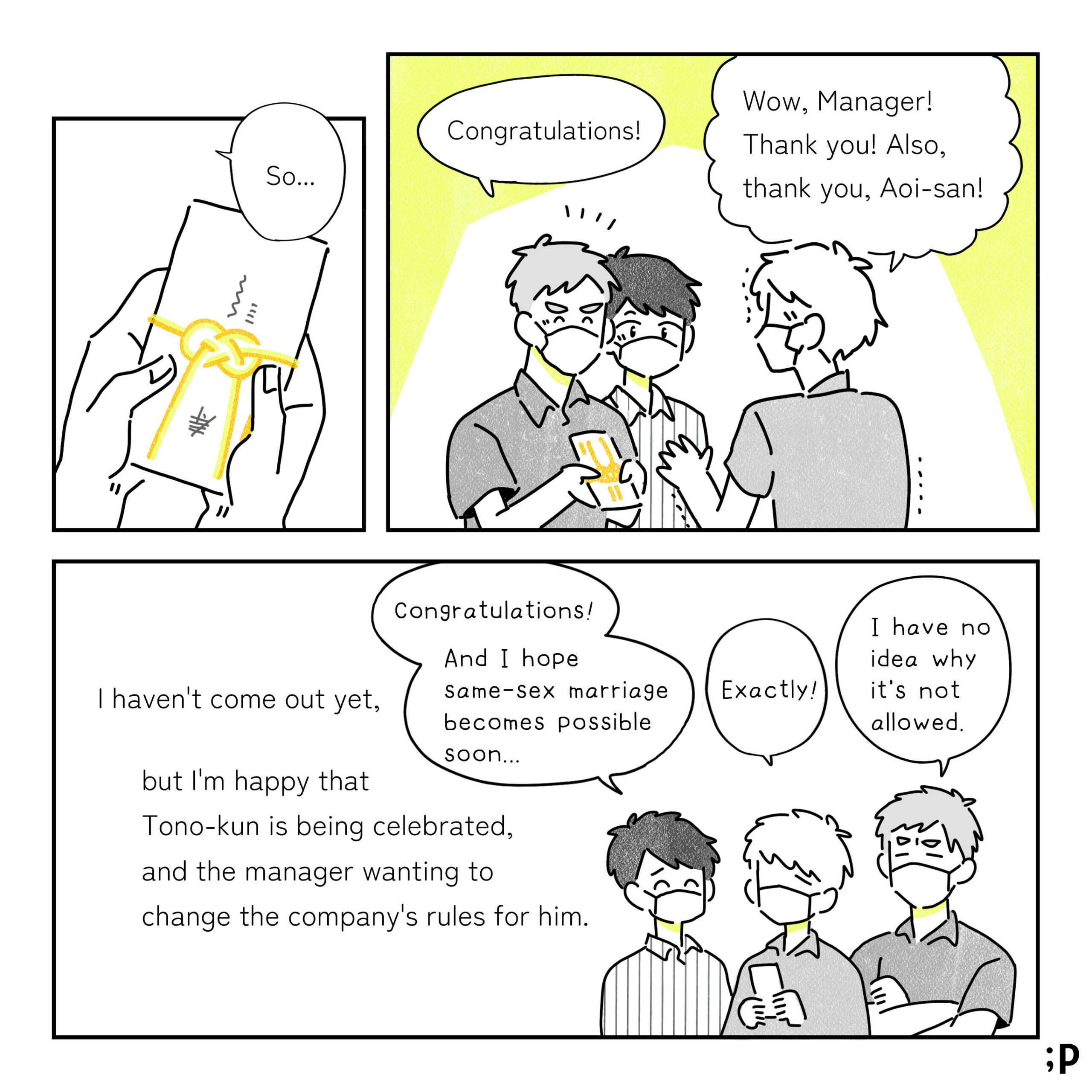【Manga】A Real Heartwarming Story at a Company: Report from a Gay Junior Colleague
In many companies, there’s a system where employees receive a marriage congratulations bonus when they get married. Traditionally, this bonus was limited to opposite-sex couples who legally tied the knot. However, in recent years, there have been various movements in different companies to extend the definition of spouses to same-sex couples.
Unfortunately, current laws do not permit same-sex couples to legally marry (same-sex marriage). Nevertheless, it’s really nice to see a growing trend within companies to treat same-sex couples the same as opposite-sex couples.
However, this movement is not yet universal across all companies, and many still lack previous examples.
In this manga, we present the real-life episode about the introduction of marriage congratulations bonuses for same-sex couples, in a company where there were no previous examples.
The person who shared this episode with us is actually in a relationship with another woman. However, she mentioned that she hadn’t thought about the company’s regulations regarding marriage bonuses until her boss brought it up, partly because there were few colleagues marrying around her, and she never expected that same-sex couples could receive such a bonus. Therefore, she was genuinely happy that her supervisor took action for a colleague who received a partnership certification.
Demonstrating a visible attitude that respects diverse ways of gender identity, including internal regulations, is encouraging for those who haven’t come out within the company. Organizing the aspects of the system is crucial in that sense.
Although there’s an increasing number of companies providing marriage congratulations bonuses to same-sex couples, there is still a significant difference in how same-sex couples are treated compared to opposite-sex couples in many companies. LGBTQ+ individuals who feel they can’t be themselves in such companies likely exist throughout Japan.
In addition to marriage congratulations bonuses for same-sex couples, there are many systems and supports needed within companies. However, the current situation is that companies with fully established systems are still limited.
Examples of Insufficient Support for LGBTQ+
1. Widespread Harassment in the Workplace
The persistence of prejudice and discrimination against LGBTQ+ individuals in the workplace can lead to various issues.
- LGBTQ+ individuals may not feel secure working, leading to an increase in leave of absence or resignation rates.
- Harassment, including outing, may occur.
- Services and publicity might be rolled out without incorporating diverse perspectives.
With the enactment of the Anti-Workplace Bullying Law (Revised Labor Measures Comprehensive Promotion Act) in June 2020, outing is explicitly recognized as workplace bullying (so called “power harassment”), and measures to prevent workplace bullying by employers, including small and medium-sized enterprises, have become mandatory.
Harassment in the workplace can take various forms, but eliminating biases and discrimination related to LGBTQ+ issues is increasingly emphasized towards each company.
2. Not Treated According to Gender Identity
Transgender and non-binary individuals have unique situations and preferences regarding their transition.
While some have legally changed their gender, the current legal requirements in Japan for altering one’s legal gender are very high. Consequently, many individuals leading a social life in alignment with their gender identity may not have it reflected in their legal registry.
- The use of facilities like restrooms that do not align with their gender identity is demanded.
- There are high hurdles to undergoing health check-ups.
- Being consistently treated with the wrong gender in daily life can lead to psychological distress (misgendering).
In July 2023, there was a notable case where the Supreme Court ruled “illegitimate” regarding the restriction of the ladies’ restroom use for a transgender woman employee who hadn’t legally changed her gender, highlighting legal challenges in these situations.
Without accurate knowledge about gender identity and transgender issues, concerns and anxieties that don’t align with reality may spread widely, making it challenging for individuals to receive appropriate support.
3. Lack of Partnership System
- Welfare benefits related to spouses, which are available to heterosexual couples in a marital relationship, are not accessible.
- The existence of same-sex partners is not considered in matters of relocation or job transfers.
In addition to marriage congratulations bonuses, many companies still don’t extend welfare benefits applicable to opposite-sex spouses to same-sex couples. This includes specific benefits like rent assistance, company housing policies, condolences leave, and condolence money.
In Japan, same-sex couples can’t legally marry as of now, which can be interpreted as the government sending a message that “same-sex couples are inferior to opposite-sex couples.”
On the flip side, establishing partnership systems within companies could be seen as an expression of the attitude of “valuing employees.”
Creating an environment where all employees can work with peace of mind not only aligns with the fundamental principle of respecting human rights but also brings several advantages to companies.
The Importance of Establishing Systems
In addition to what we introduced in this article, various issues can occur in companies that lack understanding and support for LGBTQ+.
Some might question the significance of “LGBT training.” However, understanding the presence of potential LGBTQ+ individuals in the workplace and the challenges they face is crucial to addressing issues on a company-wide scale.
If one assumes, “There probably aren’t any within the company,” or is unaware of the actual difficulties faced, they might not even realize that a problem exists. In such an atmosphere, team performance could potentially be compromised.
Being able to “be oneself” is vital in working together as a team. While creating an environment that respects diversity is primarily a matter of human rights and equality, it also holds significant importance from a corporate perspective. It is hoped that more and more companies and leaders, free from previous examples, will respect the diversity of their team members.
The prologue episode showing the journey of the manager in the manga before undergoing LGBTQ+ training is included in the book “Understanding LGBTQ+ Through Manga” by Palettalk. Check it out for further details.
(Translation: Jennifer Martin)


